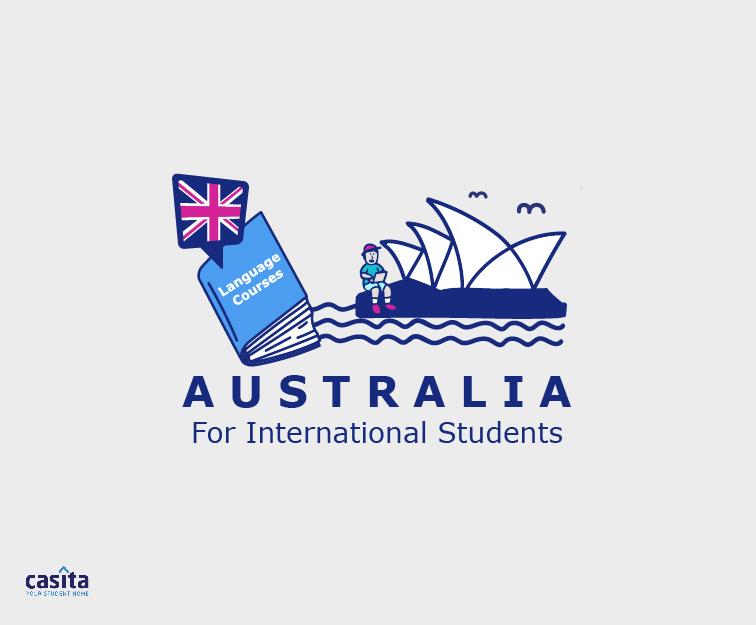Tips for Studying in a Foreign Language
Tips and Advice
4 mins read
Share

Updated at: 25 November, 2025
Published at: 10 May, 2022
By Allaa Ashraf
Tips for Studying in a Foreign Language
Tips and Advice
4 mins read

Updated at: 25 November, 2025
Published at: 10 May, 2022
By Allaa Ashraf
Share
Studying in a foreign language can be quite interesting and challenging at the same time; interesting because you’re introduced to a new culture and a new world, and challenging because, well, it’s not your mother tongue and there’s quite a lot to learn. In this blog, you’ll learn the magic tricks of studying in a foreign language.
1. Audio and Visuals
Believe it or not, movies, songs, audiobooks, and podcasts are one of the best ways to master a foreign language without attending school. Besides entertaining you, you get to listen to native speakers and learn more about the language and the culture. Movies also help you connect words with corresponding body language and introduce you to a more natural form of the language with actual vocabulary and slang. You may also watch language educational videos on YouTube; they are quite helpful.
2. On-The-Go Learning Apps
There are some great learning apps that could be used in order to boost your learning journey. Download one for language learning and another dictionary app. The best language learning apps include Duolingo and Memrise. Even if you think that hardcopy dictionaries are old-fashioned, it would be beneficial to get one as well.
3. Practise Makes Perfect
If you want to know how to learn a new language quickly, practice is the answer. Learning a new language requires practice, whether verbal or written. The more you listen and read, the better you speak and write. It is really great when you start testing your newly learned vocabulary with your flatmates and colleagues. If you feel stressed talking in a foreign language in front of other people, try it alone in front of the mirror first. While studying, you can write down all the words you do not understand, look them up, and study them.

4. New Friends
This one has a dual effect; you can make new friends while learning a foreign language. As an international student studying abroad, you have more than enough opportunities to talk to people in your second language.Try talking to random people in the nearby cafe or even on-campus and make some new friends whose mother tongue is the one you are trying to learn.
Bonus Tip: Think in the foreign language you are trying to learn, not in your mother tongue; this will be of great help if you’re trying to talk like a native speaker.
5. Being Curious
If you are wondering what a word means and how to pronounce it, just ask! If you want to get better at a language, never hesitate to ask questions. Asking questions and seeking their answers will help your memory and aid your learning journey.
6. Leaving Your Comfort Zone
One thing you have to be willing to make when learning a new language is mistakes. This may seem frightening, but it is a way to grow and progress. You'll never be able to speak a language without putting yourself out there: talk to strangers in the language, ask for directions, order food, and even try to tell a joke. The more you do it, the larger your comfort zone will expand and you'll feel more at ease in unfamiliar settings. You’re probably going to make a lot of mistakes while studying in a foreign language, embrace it.

7. “Fun” is the Magic Word
If you're willing to be committed to the language learning journey, you have to find a way to make it enjoyable. Find folks with whom you love speaking. Attend events where you may practise while having a good time. You'll quickly burn out if you just sit in a classroom with a book. Discuss personal issues that are important to you. Learn as much as you can about the individual you're speaking with. Make it personal, like a life event or you'll be in for a long, tedious process that will leave you forgetting everything you've learned. It is a creative act to use your new language in any way. Consider some entertaining ways to practise your new language.
8. Language Improvement Classes
If you’re still struggling a bit with the language, then this is where language improvement classes step in. It is important you seek help from a language professional at this point; one whom you can engage with, ask questions and practise with. These classes are also important because they allow you to engage with other language learners.
9. Reading
Reading is a vital part of the language learning process. It allows you to learn new vocabulary, learn sentence patterns, and it exposes you to the culture of the language you’re trying to learn. Start with reading simple books like children's books and then you can move to newspapers and novels.
10. Learning Goals
Short, basic, and easily measurable language-learning goals are excellent. Some people start by saying: “I want to be fluent in French in six months” for example.
What exactly is fluency? What do you mean by fluent? Is it possible to have a casual conversation? What about reading and writing? Will I understand my studies properly? Instead, it's preferable to identify explicit objectives. Begin with something like, "By the end of today, I will be able to greet and introduce myself to someone." I'll learn how to ask someone what they do for a living and explain what I do in two days. “I’ll be able to understand the terms in my studies”.
There you have it! Learning a foreign language is important and fun. And to do it right, you have to be committed and willing to learn. The tips we mentioned above will aid and enrich your learning journey. You can also check out the most popular languages to learn if you like learning a new language just as a hobby.
Tips and Advice
By Allaa Ashraf
Share
Tips and Advice
Updated at:
Published at:
By Allaa Ashraf
Share


